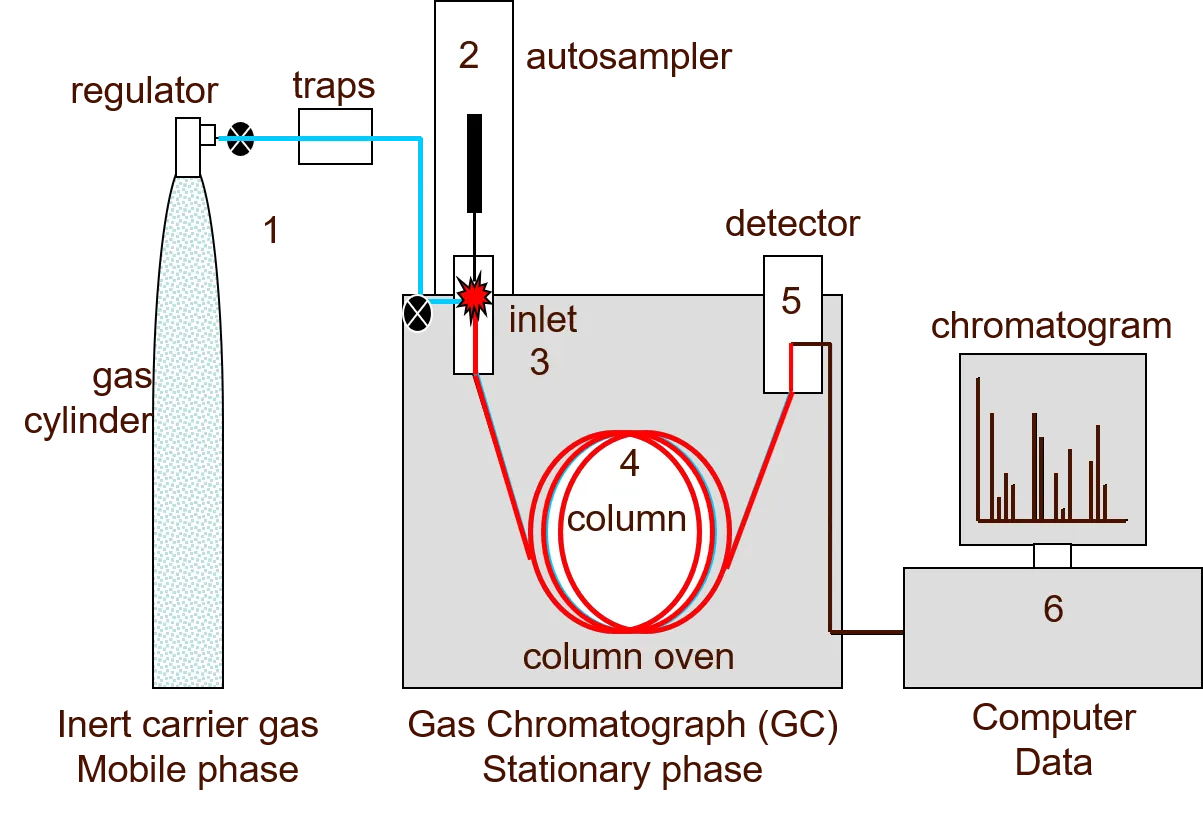What is Gas Chromatography

Gas chromatography (GC) is a separation technique used to analyze and identify volatile organic compounds (VOCs) and other small molecules in complex mixtures. It involves passing a gaseous mixture of the sample through a stationary phase, which is typically a coated capillary column. As the sample interacts with the column, the components in the mixture are separated based on their physical and chemical properties.
Gas Chromatography relies on the principle of differential partitioning, where the molecules in the sample partition between the stationary phase and the mobile phase (the carrier gas) at different rates depending on their interactions with the stationary phase. The separated components are then detected and identified by a detector, which produces a signal proportional to the amount of each compound present.
GC is widely used in analytical chemistry, biochemistry, and environmental science for the detection and quantification of trace amounts of compounds in various sample matrices, including air, water, soil, and biological fluids. It is also used in the quality control of food, pharmaceuticals, and other consumer products.


